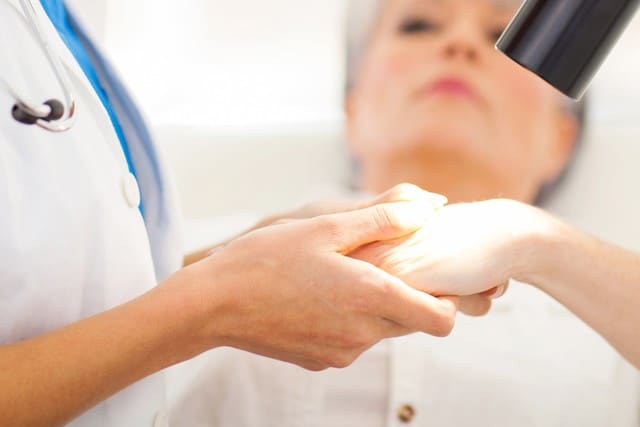
One of the most common types of cancer in the United States isn’t breast cancer or pancreatic cancer. It’s actually skin cancer. Skin cancer is one of the few types of cancers that can be physically seen before it becomes a more serious problem. With this in mind, it is critical that patients are aware of what to look for on their skin and when to contact a dermatologist. At Harris Dermatology, not only can we evaluate skin growths, lesions, and moles that might be cancerous, but we also strongly recommend that patients maintain regular skin cancer screenings with their dermatologists. With annual visits to monitor the skin, patients are taking a proactive approach to ensuring any signs of a problem are caught early enough for successful intervention. Fort Myers and Naples, FL area patients are welcome to book an evaluation with our doctors if they suspect problems have arisen.
When should I be concerned about a new skin growth or lesion?
Not all moles, growths, and lesions are cancerous. In fact, many are benign and can be treated with removal. However, there are times when changes in the skin might signal cancer. Knowing what to look for the is the first step in proactively protecting one’s self from skin cancer. Below are just a few things to look out for when monitoring your skin’s health and changes:
- New growths or lesions that have developed on the skin
- New spots that change in size or appearance
- Growths that bleed, scab, and never seem to heal properly
- Skin tags or lesions that become painful, itchy, or bothersome
- Changes in existing moles, including shape, size, color, and border
- One mole or lesion that is larger or different from the rest on the body
Request a visit with Harris Dermatology today
Fort Myers and Naples, FL area patients who are concerned about new skin growths or lesions will want to book a consultation visit with our team at Harris Dermatology at either of our two office locations. Drs. Brian A. Harris, H. Ross Harris, and Keith A. Harris are available to assist new and returning patients who are concerned about changing or suspicious growths that may be indicative of skin cancer.

